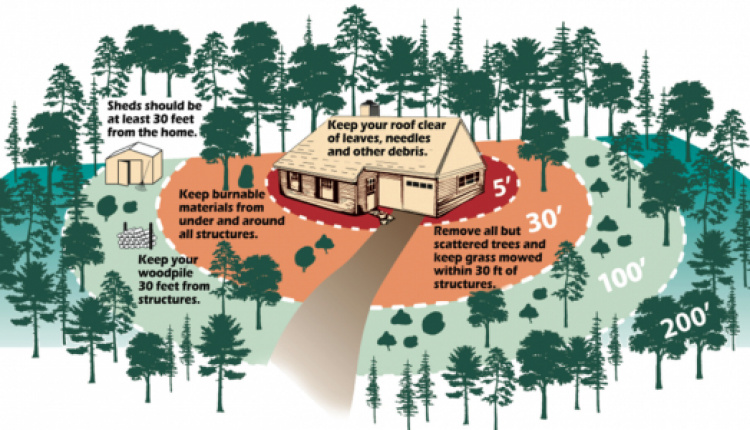How To Prepare For A Wildfire
- by XpatAthens
- Thursday, 01 August 2024

A wildfire is an uncontrolled fire that burns in the wildland vegetation, often in rural areas. Wildfires can burn in forests, grasslands, savannas, and other ecosystems, they are not restricted to a particular continent or environment, and they are responsible for vast catastrophic events.
Every year, Greece faces a great number of forest fires and according to statistics, at least twenty percent of them are a direct result of deliberate arson. During the summer of 2007, Greece experienced more wildfire activity than other European country has over the last decade; according to the European Space Agency (ESA), the Attica fires in 2018 were the second-deadliest wildfire event in the 21st century.
Future projections show that forest fire danger, length of the fire season, and fire frequency are very likely to increase in the Mediterranean, mainly as a result of the dry weather, increased climate variability, and damaged ecosystem.
With this in mind, the General Secretariat for Civil Protection of Greece has issued the following guidelines on how to prepare in case of a wildfire.
If you are in the countryside:
- Don’t burn litter or dry vegetation and small branches (twigs) during the summer.
- Don’t use open-air barbecues in forests or places close to dry vegetation during the summer.
- Avoid open-air activities that may cause a fire (i.e. torch weld, wheel, or other instruments that create sparks).
- Never throw cigarette buts on the ground.
- Properly dispose of rubbish and never in forest areas.
If your house is located in a forest area:
- Create a firebreak around your home by clearing dry leaves and vegetation, pine needles, branches, etc at least within a 10-meter radius of your house.
- Remove all dry branches from trees and bushes.
- All trees within a 5-meter radius from your house should be pruned so that their branches don’t lean on the walls, on the roof, or on the balconies.
- The branches of one tree should be at least 3 meters apart from another.
- Protect the windows and the glass doors by installing shutters made from non-flammable materials.
- Cover the chimneys and the ventilation pipes with non-flammable materials.
If you notice fire IMMEDIATELY call 199 for the Fire Service call center (or 112 for the central emergency center) and give clear information about where you are, the location and the direction of fire, and the kind of vegetation that is burning.
If the fire is approaching your home:
-
Stay calm.
-
Relocate all flammable materials around the building to closed and protected areas.
-
Close all the passages (chimneys, windows, doors, etc) to prevent sparks from entering the building.
-
Shut off all the gas and liquid-fuel supplies.
-
Open the gate of the garden to facilitate fire-fighting vehicle access.
-
Put a ladder outside the building so that someone is able to climb immediately on the roof.
-
Switch on the interior and exterior lights to increase visibility
If the fire has reached your home:
- Do not abandon the building unless your escape is completely secured.
- Do not take shelter in a car. The possibility of survival in a building constructed by non-flammable materials is greater than that inside a vehicle close to smoke and fire.
- If you stay indoors:
- Close firmly all the doors and windows.
- Block up all the cracks with wet clothes, in order to prevent smoke penetration.
- Remove the curtains from the windows.
- Move any furniture into the center of the residence away from windows and exterior doors.
- Fill up the bathtub, wash basins, and buckets so that you have spare water.
After the fire is extinguished
- Get out of the house and at once put out the remaining hot spots.
- Inspect for at least 48 hours, at regular intervals, the perimeter and the exterior of the building for possible re-ignitions.

